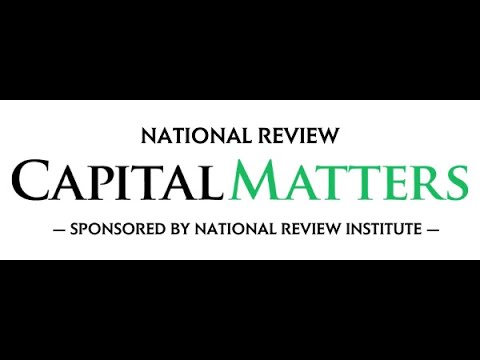National Review Capital Matters opinion piece: New Mexico Wins the Lottery
The following opinion piece appeared in National Review’s Capital Matters on May 1, 2023.

Study after study shows that people who win lotteries often fritter away the newfound wealth and wind up no better off than they were before. States don’t win lotteries, but New Mexico recently came as close as a state can.
A recent report from Pew found that between January 2020 and June 2022 no state saw faster growth in tax revenues than New Mexico. In late 2022, budgetary analysts started telling New Mexico politicians that they were in for an even greater “gusher” of revenues. That’s thanks to the state’s share of the Permian Basin, which has led to New Mexico becoming the second-largest producer of oil in the nation. New Mexico’s oil production has approximately quintupled since about 2011
For a state with just over 2 million people, this kind of boom has led to an incredible amount of money flowing into state coffers relative to the size of the state budget. Budget analysts at the end of 2022 said that state revenue would exceed spending obligations by 43 percent, with revenue rising to nearly $12 billion.
One might compare such a windfall to winning the lottery. Unfortunately, according to the National Endowment for Financial Education, 70 percent of lottery winners go bankrupt within a few years. New Mexico hasn’t gone bankrupt and, as long as the oil-and-gas money continues flowing, it will continue to have money. But New Mexico continues falling further behind economically.
The state is a cautionary tale that budget surpluses are nice, but even massive budgetary windfalls like New Mexico’s can fail to improve a state’s economic situation.
New Mexico has been a “blue” state since 1930. Over the last nearly 100 years, the state has had its share of Republican governors, but rarely even one house of the legislature under GOP control. Since Herbert Hoover was president, New Mexico’s GOP has never controlled both houses simultaneously. It has always been a poor state with an economy reliant on federal spending and natural resources. That could still change (if the state’s politicians get their act together).
Alas, alleviating New Mexico’s poverty (it has the nation’s third-highest poverty rate) will require “progressive” policymakers to suddenly figure out basic economics. Otherwise, all this oil-and-gas revenue is going to be frittered away with little or no improvement in the state’s dismal rankings.
Lottery winners didn’t suddenly work harder or become better at managing money overnight. So, when presented with a large amount of unearned wealth, they tend to make poor decisions. And all that brings New Mexico’s politicians to mind.
Take the recently completed New Mexico legislative session as Exhibit A. When presented with a budgetary windfall, what did they do? Believe it or not, the first versions of a big tax bill included several tax hikes. Initial versions of an “omnibus” tax bill introduced in the New Mexico Legislature included:
- Two additional tax brackets of 6.5 and 6.9 percent . New Mexico’s current top rate is 5.9 percent (already increased from the 4.9 percent rate charged during Bill Richardson’s days as governor) would have been further augmented by even higher rates with the 6.5 percent kicking in at $200,000 for married filers;
- Tax hikes on capital gains and corporate income;
- Higher taxes on tobacco and alcohol;
- Subsidies for electric-vehicle buyers, charging stations, and additional handouts for the already-heavily-subsidized film industry.
There were some modest reductions of New Mexico’s peculiar gross receipts tax, however even those reductions were to be phased in over four years and were made contingent upon future tax revenues meeting current record-breaking levels.
In the end, this bill, which was put together and passed by New Mexico’s overwhelming Democratic legislative majorities was (mostly) vetoed by Democrat Governor Michelle Lujan Grisham.
She could have taken a stand for free markets by just eliminating the bill’s proposed tax hikes. Or she could have done all manner of other things with the bill. Ultimately, what became law were one-time tax “rebates” of $500 or $1,000 depending on filing status, a boost to the already-generous film subsidies, a “refundable” child tax credit that mostly amounts to spending, and—this was welcome –-ending taxation of deductibles and copays paid to medical professionals.
In the end, most of the surplus was retained or used to add to New Mexico’s already bloated state government. Spending grew by another $1.2 billion in the latest budget thanks to a 14 percent year-over-year increase.
As you can probably imagine none of this is going to inspire businesses or citizens to flock to New Mexico. Narrowly avoiding a slew of tax hikes while in posession of the largest surplus in state history is at best a reiteration of the state’s broken “progressive” politics which have done so much to keep the state impoverished for decades. That the state is taking this tack at a time when neighboring Texas, Utah, Colorado, and Arizona have been cutting taxes only makes matters worse.
Paul Gessing is president of New Mexico’s Rio Grande Foundation. The Rio Grande Foundation is an independent, nonpartisan, tax-exempt research and educational organization dedicated to promoting prosperity for New Mexico based on principles of limited government, economic freedom and individual responsibility

